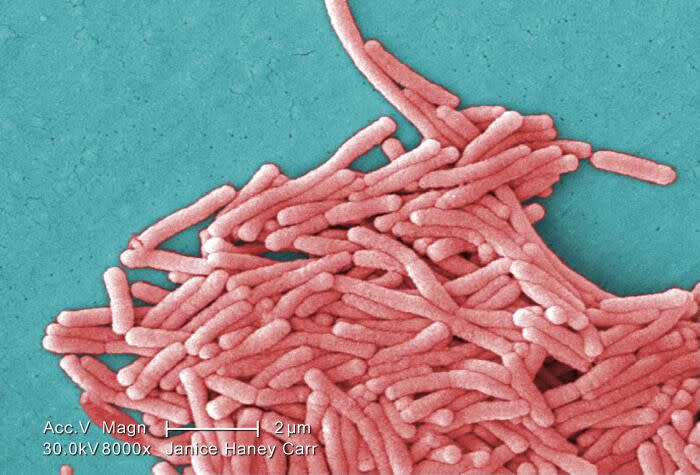Bay Area spa ordered closed following two deaths; Legionnaires' disease suspected

Contra Costa county health officials are investigating two recent deaths associated with Legionnaires’ disease, a serious lung infection, possibly linked to visits to a Richmond spa.
Health officials so far have determined that both deaths, which were reported to county health officials Thursday afternoon and Friday morning, came after the patients visited the spa just days prior to the onset of their illnesses.
A third person was infected with Legionnaires' disease after using the jacuzzi tub at the Zen Day Spa in June but recovered, officials said.
Health officials closed the spa on Friday after finding no records indicating the business has ever been issued a permit for a spa or pool.
Legionnaires’ disease is a serious type of pneumonia caused by Legionella bacteria. People can get sick if they swallow water or breathe droplets of water containing the bacteria into their lungs. The disease is treatable with antibiotics. The incubation period following exposure is typically two to 14 days.
People at higher risk for the disease are those who are over 50 years of age, have a past or current smoking history, have chronic lung disease or have a weakened immune system.
Health officials encouraged anyone who may have recently visited the Zen Day Spa to watch for shortness of breath, fever, chills, cough or other symptoms of the disease and seek immediate medical care if they surface. Officials also advised healthcare providers to test for Legionella in patients with pneumonia who visited the space within two weeks of their illness.
Updates will be posted on the Contra Costa County Health Facebook page.
Last year, a Legionnaires' outbreak was linked to a Napa County hotel's contaminated cooling tower where one person died.
Also in the same year, a Southern California couple battled Legionnaires' disease after staying at a San Jose hotel. Officials said bacteria was found in the pool and hot tub.
Sign up for Essential California, your daily guide to news, views and life in the Golden State.
This story originally appeared in Los Angeles Times.

